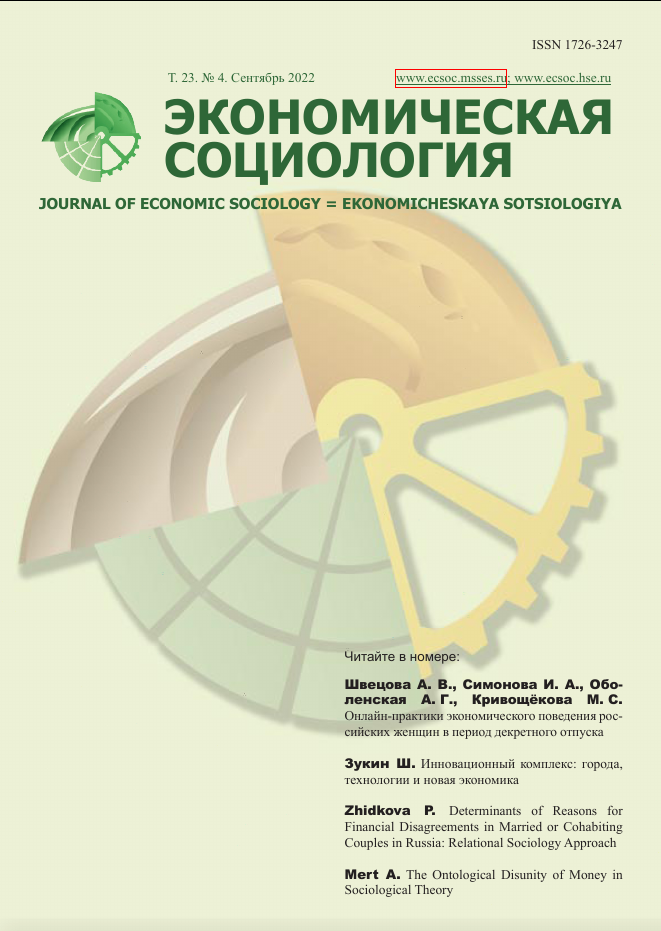The Ontological Disunity of Money in Sociological Theory
Аннотация
This article examines the ontological question concerning the mode of existence of money in its various conceptualisations in sociology, namely in the theories of Marx, Simmel, Moss and Zelizer. It is argued that money is considered in sociological theory at three ontological levels, namely, (1) Determinate being of money, or concrete money stuff, which is immediately experienced and singularly represented, (2) the representation of money on which the perception of money stuff as money is grounded and (3) the objectivity of money, that is, the objective reality, either material or sui generis, which stands behind money as such. The first level, represented by Zelizer’s theory of monies, contains objects to which a subjective meaning is attached according to the concrete social relations. The second level takes money regardless of its substance and treats the essence of money not as the subjective meaning attached to things but as the idea of money, i.e., the universal form of representing things. The third level points at the reality that mediates the first two as subjective conditions of ultimate reality. It is shown that in all these theories the consistent account of money seems to be possible only due to the negation of the other ontological planes of money and that creates ontological disunity within all these theories.













